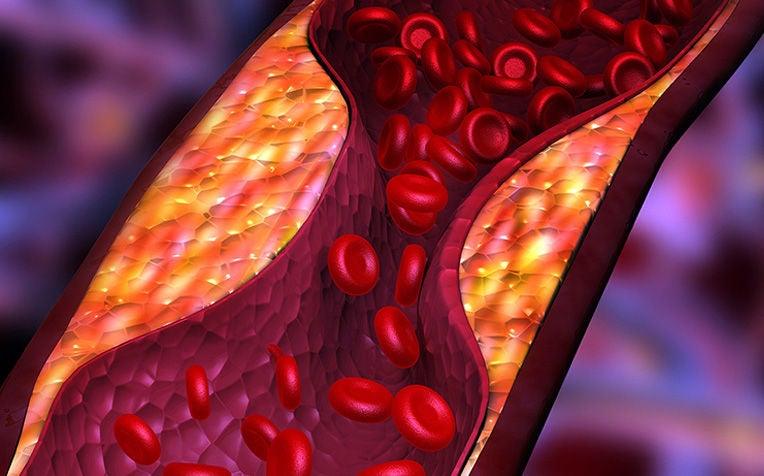
Atherosclerosis (plaque buildup) can affect any artery in the body, leading to serious health complications.
Coronary atherosclerosis can be a fatal condition. It refers to the buildup of fats, cholesterol and other substances in or on your artery walls (plaque), which can restrict blood flow. The most effective way to reduce the risk of atherosclerosis becoming fatal is to have frequent health check-ups.
“The best way to counter the degenerative effects of atherosclerosis is through early detection,” said Clinical Associate Professor Aaron Wong, Deputy Chief Executive Officier and Senior Consultant from the Department of Cardiology, National Heart Centre Singapore (NHCS), a member of the SingHealth group.
Atherosclerosis (plaque buildup): How to prevent and lower your risk
To keep heart disease at bay, adopt a healthy lifestyle, which includes:
Eat a healthy diet: Eat foods that are high in fibre and wholegrains. Avoid foods with excessive salt, sugar or saturated fats.

Exercise regularly: Aerobic exercises such as jogging, brisk walking or cycling are the best types of exercises for heart health. One should ideally complete 150 minutes of moderate-intensity exercise each week. Please seek your doctor’s advice if you are unsure of the suitable level of intensity for yourself.
Achieve and maintain a healthy body mass index (BMI): The healthy range for Asians is from 18.5 to 22.9 kg/m2.
Get sufficient sleep: One should aim to get six to eight hours of sleep daily. Inadequate sleep (≤4 hours) or excess sleep (≥10 hours) has been associated with increased risk of coronary artery disease.
Stop smoking (if you haven't): Smoking contributes to atherosclerosis and increases the risk of a heart attack. Many smoking cessation aids can improve your chances of success in trying to quit smoking. Speak to your doctor for help with quitting smoking.
Keep alcohol consumption in check: Men should drink no more than two standard drinks a day, and women, no more than one. A standard alcoholic drink is defined as a can (330 ml) of regular beer, half a glass (100 ml) of wine or 1 nip (30 ml) of spirit.
"These precautions will not only protect you against heart disease, but also prevent a host of other health problems,” added Dr Wong.
It's not just the heart, atherosclerosis (plaque buildup) can occur in other parts of the body
Atherosclerosis can occur in any artery in the body:
1. Peripheral arteries (arms and legs)
These are arteries in the arms and legs. Blockages in leg arteries may cause pain in the legs when walking. If the pain is bearable, the doctor may advise the patient to keep on walking through the pain, to encourage the body’s coping mechanism to build capillaries around the blockage. Limb artery blockages cause poor healing of wounds in patients with diabetes, and opening up such arteries with stents or surgery may prevent limbs from being amputated.
2. Carotid arteries (neck)
The carotid arteries, which are located along the sides of the neck, supply oxygen to the brain. When blockages develop in these arteries, a stroke may occur. A blockage here can sometimes be detected by putting a stethoscope to a carotid artery to listen for a whistling sound with every heart pulsation.
3. Renal arteries (kidney)
Atherosclerosis in these arteries, which supply blood to the kidneys, causes a gradual loss of kidney function. It can lead to uncontrolled high blood pressure and kidney failure.
Ref: I23 (ed)
Check out other articles on heart health:
Sudden Chest Pains You Shouldn't Ignore
Heart Palpitations: When Are They Serious?

















